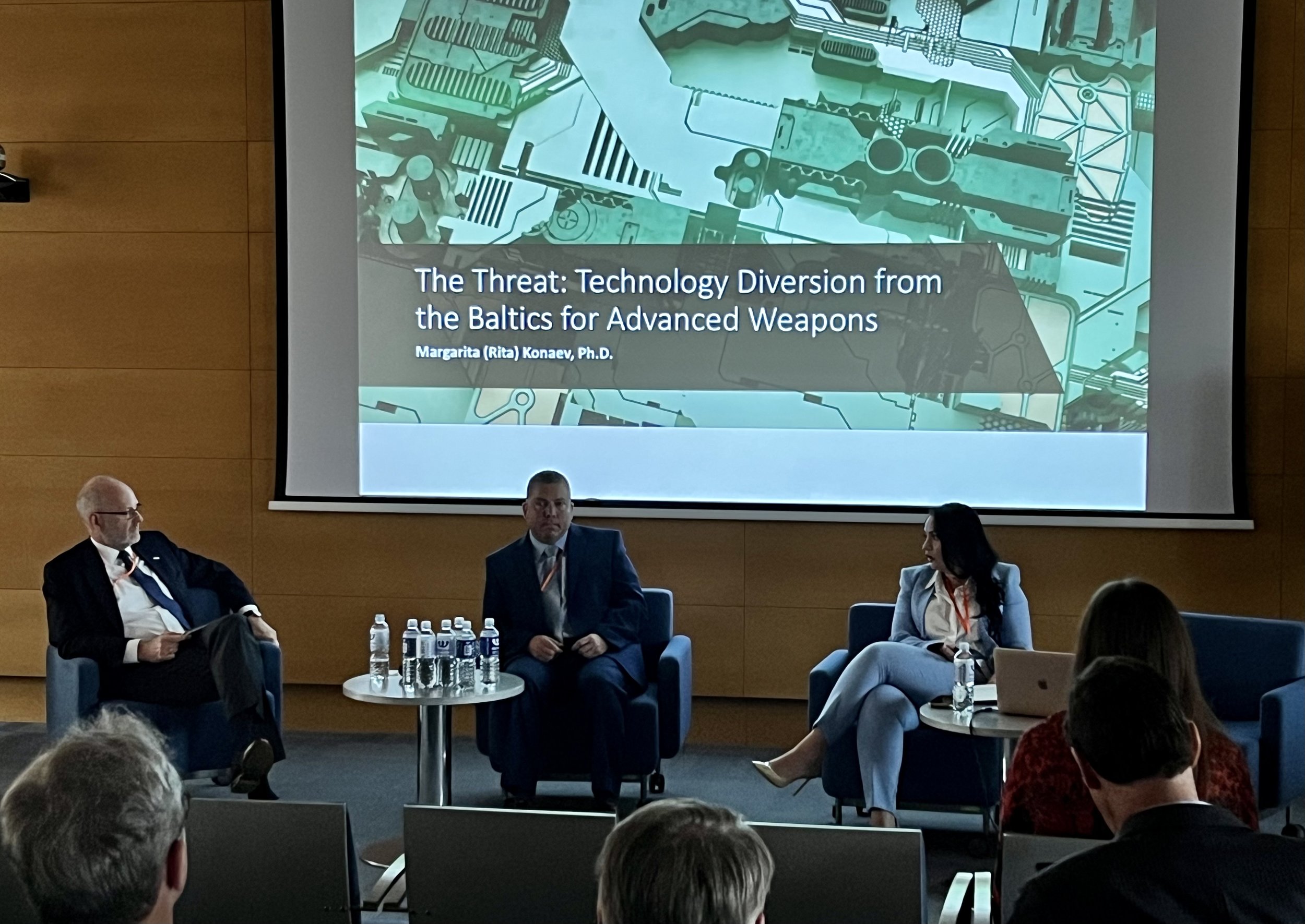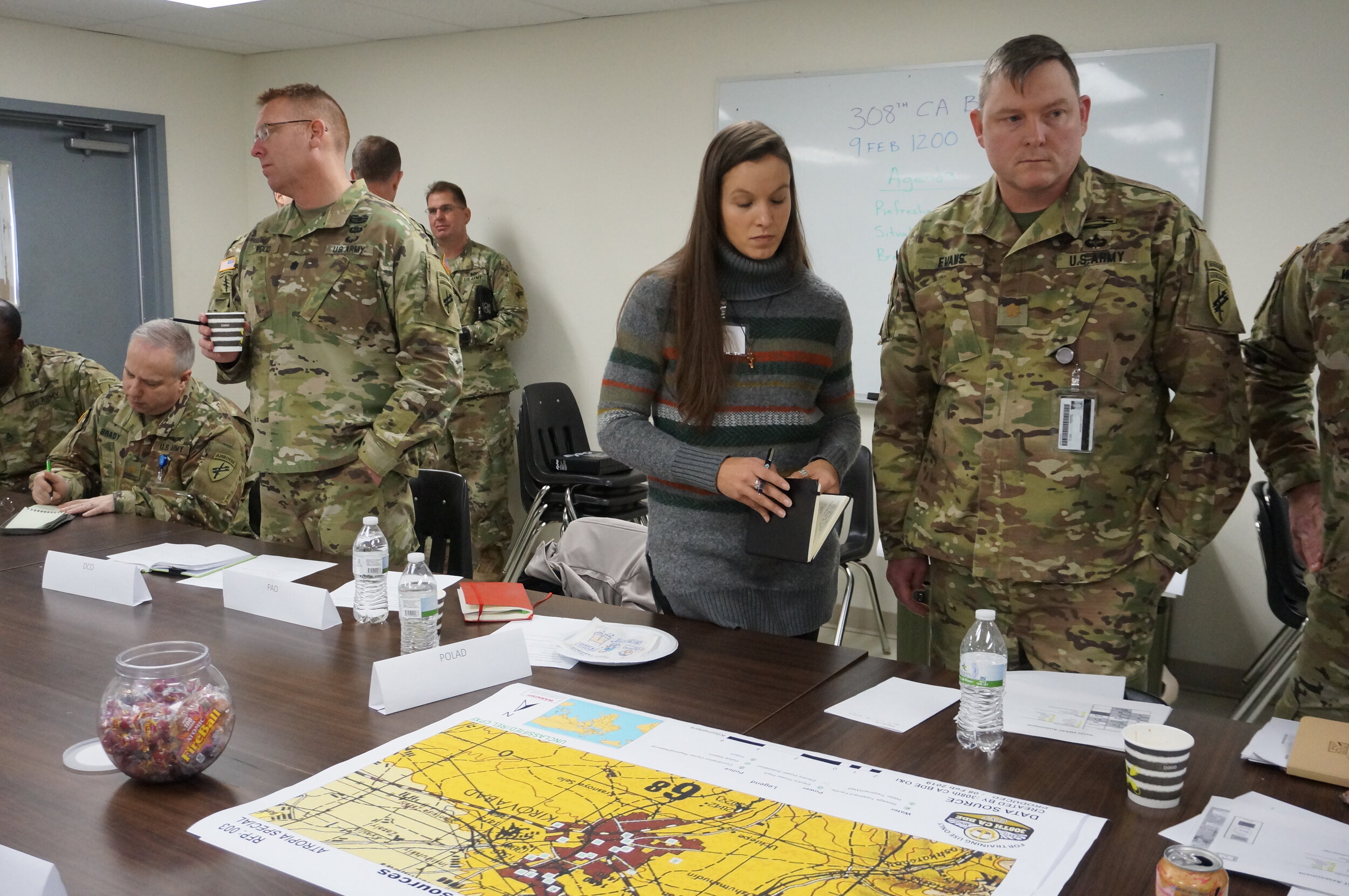Motive designs and implements a variety of programs for government, industry, and civil society sector partners. Whether we’re implementing complex projects overseas or providing advisory services right here in the U.S., 100% of Motive’s programs are aligned with our mission to mitigate conflict and promote stability around the globe. Our programming has included trade promotion initiatives in frontier markets, security cooperation focused on peace-building and human security, and countless live and tabletop exercises that prepare cross-sector stakeholders to tackle human security dilemmas. As practitioners, we’re constantly innovating new tools and methods in the field, then integrating lessons learned into our courses and training activities. This page highlights some of our thematic and functional programming expertise.
Nonproliferation and Strategic Trade
With funding from the U.S. State Department, Motive has designed and implemented projects all over the world to prevent sensitive technology and know-how used in WMDs from falling into the hands of malign actors. We developed a rigorous methodology to identify items and entities at greatest risk of dual use goods diversion and sanctions evasion, and have applied this across numerous countries to expose new risk vectors. We pioneered a capability-based framework to assess government and industry capacity to manage strategic trade risks, then integrated this into data-driven tabletop exercises that closed capability gaps while inspiring policy and practice reforms. Motive is currently implementing nonproliferation and strategic trade-related programs in Africa, Europe, and Asia.
Motive facilitates cross-sector events all over the world to catalyze policy and practice reforms that safeguard sensitive technologies and sanctioned items.
A Motive expert role player advises the training audience at a civil-military exercise. All Motive role players have decades of real-world experience in their assigned roles.
Live exercises we’ve supported include:
Jade Helm (USASOC)
Spartan series (USMC)
Defender (EUCOM & NATO)
Gobi Wolf (INDOPACOM)
Integrated Advance (SOUTHCOM)
Live and Tabletop Exercises
For U.S. military clients like the U.S. Army Civil Affairs and Psychological Operations Command (USACAPOC), Marine Corps Tactics and Operations Group (MCTOG), Security Force Assistance Brigades (SFABs), and others, Motive supports live exercises involving complex human security problems. Our Subject Matter Experts design realistic scenarios and serve as expert role player advisors. Motive role players have decades of real-world experience on Embassy Country Teams or working with UN, foreign government, and civil society organizations, and are experts in topics like atrocity prevention, IDP management, social media exploitation, and more.
Integrating scenario-based problem-solving, immersive multimedia, data analytics, and bias for action, Motive is a world-leader in high-impact Tabletop Exercise (TTX) design and facilitation. Motive TTXs don’t just support experiential learning, they catalyze outcomes that endure long after the game. The U.S. State Department hired Motive to design a custom Atrocity Prevention TTX that is helping policy officials and their partners more effectively intervene in ongoing crises around the world. Hundreds of international government and industry leaders have participated in Motive TTXs focused on nonproliferation, refugee management, illicit trafficking, and other topics - with many going on to spearhead national- and regional-scale policy and practice reforms. Our custom TTX software allows us to design games that are more sophisticated, realistic, and data-driven than paper-based TTXs, without compromising the dynamic human elements that make games impactful.
security cooperation
Motive has supported numerous security cooperation events sponsored by the DoD’s Near East and South Asia Center for Strategic Studies (NESA). We designed a simulation for the Lebanese Armed Forces (LAF) focusing on refugee and internally displaced person (IDP) management that led to “breakthrough” policy and operational options. For participants representing 15+ partner nations across the Gulf and Levant, we led workshops on transnational security that helped improve cross-border coordination on counternarcotics and illicit finance.
Since 2016, Motive has supported the Monterey, California-based Institute for Security Governance (ISG), formerly the Center for Civil-Military Relations (CCMR), through design and delivery of overseas and in-residence security cooperation programs. Motive experts have led events on reintegration, countering violent extremism, borders management, gender integration, and other topics, deploying to Tajikistan, Uzbekistan, Argentina, Panama, and elsewhere with ISG.
Representatives from across the Middle East participate in a Motive-designed, NESA-sponsored workshop on transnational threats. Motive often integrates tabletop exercises and simulations in security cooperation events.
Among Motive’s cross-sector partners is the Nigerian think tank the Savannah Centre for Diplomacy, Democracy & Development (SCDDD), led by Ambassador Abdullahi Omaki, pictured above with Motive CEO Morgan Keay.
Our technical areas of expertise include:
Strategic Trade and Trade Promotion
Public-Private Partnerships
Borders, Migration, and Refugees
Food Security and Agribusiness
Health Systems Strengthening
Supply Chain Security
Emerging and Disruptive Technology
Stable Markets & social impact
On behalf of the U.S. Trade & Development Agency (USTDA), Motive worked with government, industry, and civil society stakeholders across Sub-Saharan Africa to structure high-impact investments in the continent’s healthcare sector. Our programming catalyzed billions of dollars in new investments in African hospitals, medicine manufacturing facilities, and other projects to make African healthcare systems more resilient and inclusive. Investments also helped mitigate destabilizing risks exposed during the pandemic stemming from weak healthcare infrastructure and supply chains. In so doing, our work contributed to USTDA goals of promoting U.S. business while achieving positive developmental outcomes, and advanced Motive’s mission to mitigate global instability.
Among Motive’s first initiatives after our founding in 2015 was our support to the Nigerian government as they launched a massive school feeding program – part of an ambitious social safety net agenda. We helped the government connect with smallholder farmers and local food processors – even in conflict-affected areas -- to develop agile supply chains for the program. We also developed innovative financing models involving public spending and impact investments. Years later, Nigeria’s school feeding program is among the largest in the world, contributing to stability through food security and sustainable agribusiness.
Monitoring, Evaluation & Learning
Taught in our popular Transforming Crisis Systems course and applied to everything we do, our originally-developed “Types & Targets of Change” (T2Delta) tool was designed by Motive social scientists to craft airtight indicators that measure results at the output through impact levels, seamlessly aligned to Theories of Change.
As part of a pro-bono impact initiative we supported in Indonesia, a Motive team worked with local civil society and government officials to craft a monitoring and evaluation (M&E) framework to measure progress towards reducing police violence against LGBTQ+ citizens. Participatory M&E boosted stakeholder accountability and empowered local activists with the data to drive change.
Struggling with new requirements to incorporate Theories of Change in assessments, monitoring & evaluation (AM&E), CENTCOM’s counter-narcotics branch hired Motive to advise their personnel on our powerful T2Delta + Theory of Change method. We helped craft highly targeted measures of effectiveness (MOEs) so CENTCOM could rigorously measure the degree to which their multi-million dollar security cooperation portfolio contributed to stability and campaign objectives.
A Motive team applies participatory M&E methods in Indonesia alongside citizens experiencing conflict with local police.
M&E capabilities we teach & apply include:
Large-scale polling
AI-powered data analytics
Leveraging existing datasets
Measuring training & education outcomes
Using qualitative & quantitative indicators




